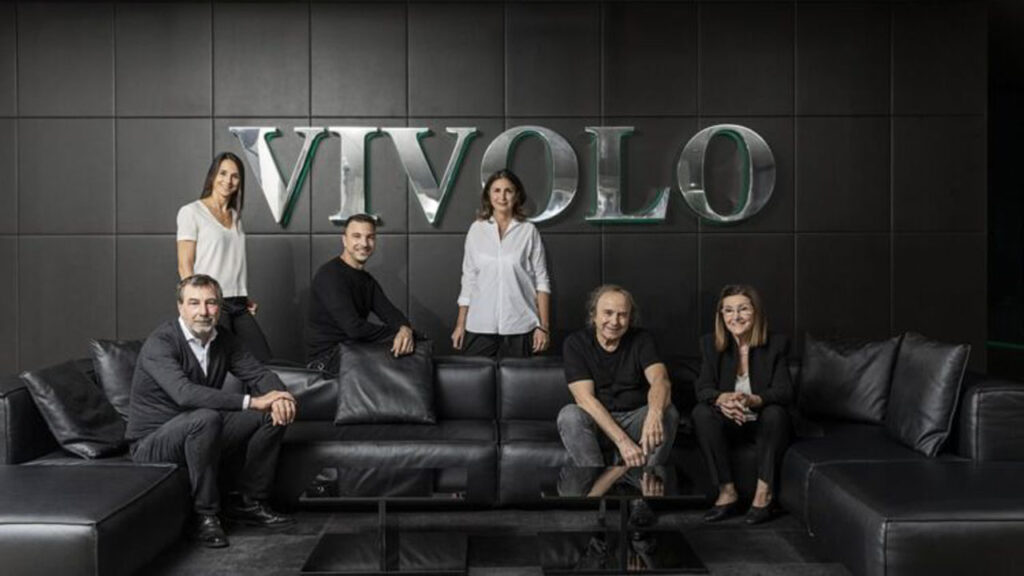Headquartered in San Lazzaro di Savena (Bologna), Vivolo is a dynamic, cutting-edge company, leader in the sustainable and quality creation of leather accessories for clothing, footwear and leather goods.

Founded in 1977 thanks to the intuition of Luciano Vivolo – who saw in leather industry waste an opportunity for innovation and creativity for the fashion industry – Vivolo is today an established reality also at an international level, which can count on 100 collaborators and which contributes to supplying, to the most important fashion houses all over the world, more than 8 million articles per year, manufactured one by one in compliance with high quality standards.
Vivolo’s creative and vital impulse, capable of transforming an industrial waste into a revolutionary added value, today, as then, continues to explore and search for new solutions and ever-challenging horizons. From small leather goods to footwear, from bags to clothing, the Bologna-based company follows its evolutionary vocation, with the precision, quality and commitment that have made it indispensable to the world of fashion. Season after season, Vivolo’s proposal anticipates the trends of the moment, developing creative, technical, material and chromatic proposals that are always innovative. The recent SS25 collection is a voyage across land, sea and air, an exploration that encapsulates in nine books the inspirations that Vivolo puts at the service of its partners: from the iconic hot-printed or digitally printed leather labels for denim and classic trousers, to the lace endings, new this season, and 3D printing; from the sparkling holiday and sea themes, to the more irreverent comics and logomania; from the explosions of colour in silicone to the green research on natural and recycled materials.
At the centre of its business, Vivolo always places environmental ethics, in a vision that embraces the product in all its dimensions, integrating processes and working and human relations. In addition, the vertically integrated supply chain makes it possible to study and adopt efficient, transparent processes and circular economy solutions to valorise processing waste.
Read complete article onarsutoriastudio.